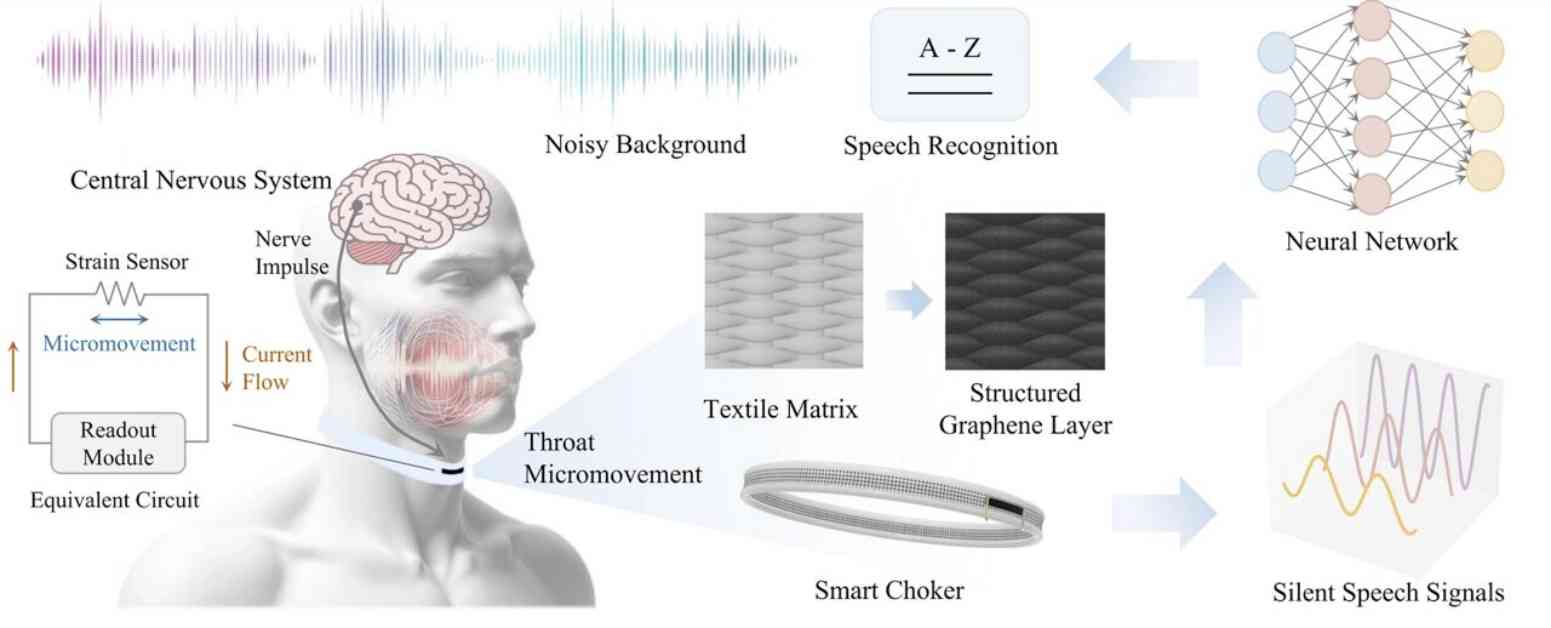A new wearable technology called a smart choker is being developed to revolutionize silent speech interfaces (SSI) by using an ultrasensitive strain sensor embedded in the device. Researchers at the University of Cambridge are leading the way in this innovative technology that could help individuals who have difficulty speaking in noisy environments or due to speech impairments.
The smart choker is worn around the neck and can detect micromovements in the throat, even when words are silently mouthed. This information is captured by the strain sensor, converted into electrical signals, and processed by brain-inspired computer software for speech recognition. The device is designed with a structured graphene layer that significantly enhances the sensor’s sensitivity, allowing it to accurately decode speech signals with an impressive accuracy rate of 95.25%.
One of the key features of this technology is its adaptability to different users, vocabularies, and reading speeds. It has been demonstrated at the IEEE Biosensors 2024 conference, showcasing its ability to decode a wide range of words and operate efficiently in various real-world scenarios. Dr. Luigi G. Occhipinti, the lead researcher behind this project, highlights the user-friendly nature of the smart choker and its potential to set a new standard in wearable silent speech communication technologies.
Moreover, the fabrication method of the textile strain sensor is biocompatible, cost-effective, and durable, making it suitable for prolonged use. The device can withstand over 10,000 stretching-releasing cycles while maintaining stable functionality. This combination of sensor design and neural network optimization offers a comfortable and groundbreaking solution for silent communication.
Overall, the wearable smart choker with its graphene-based strain sensor technology holds great promise for practical applications in SSI systems. It provides a non-invasive and efficient way for individuals to communicate silently in challenging environments. With ongoing research and advancements in this field, the future looks bright for wearable technologies that enhance speech recognition and accessibility for all.












